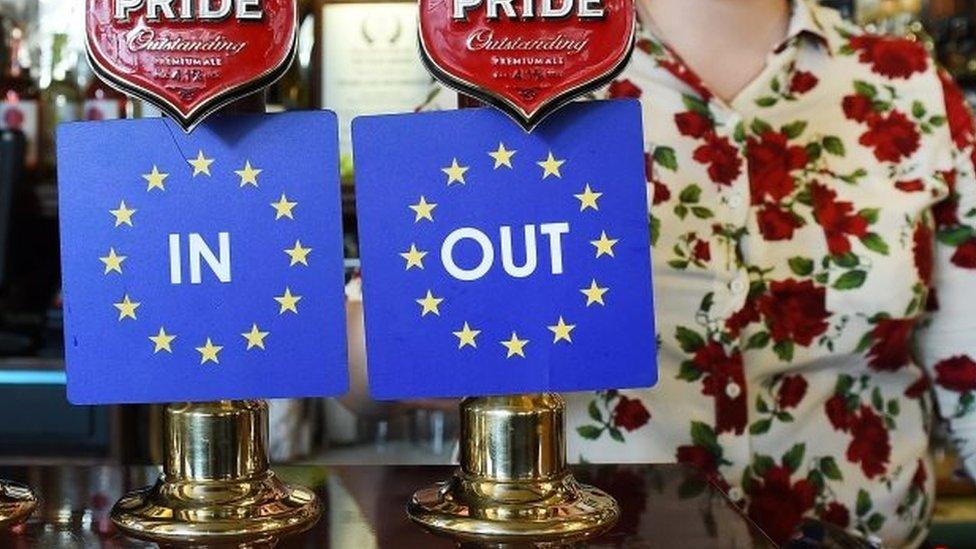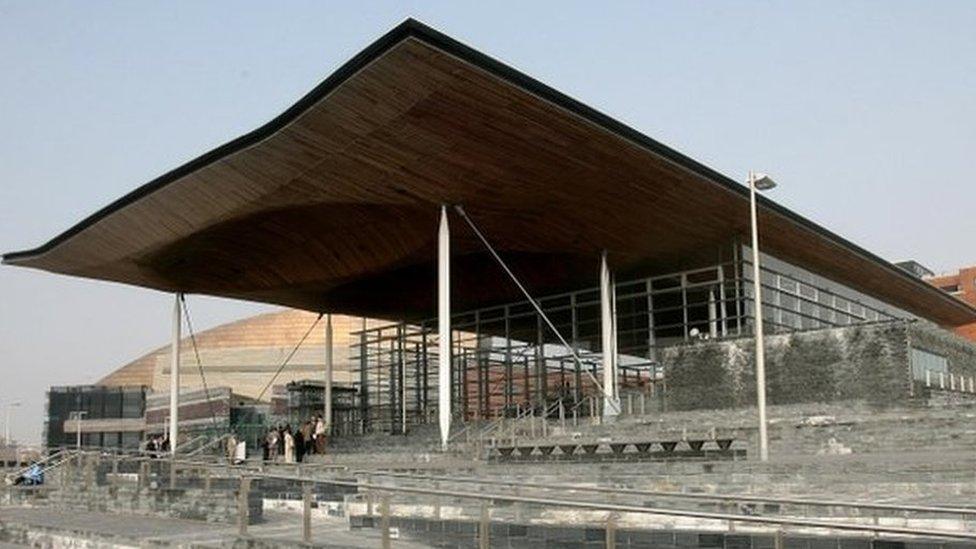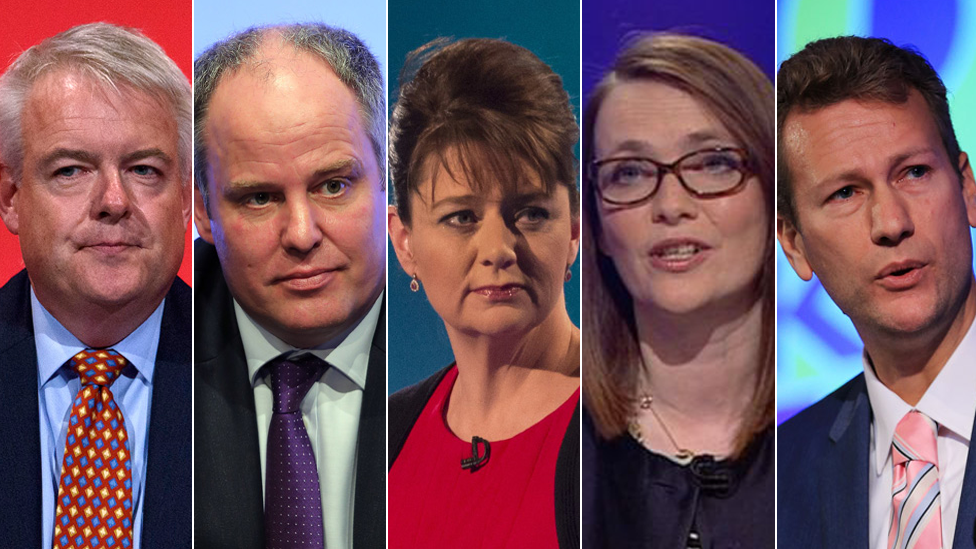How the EU referendum could hit the Welsh election, and vice versa
- Published

With a busy summer ahead at the Welsh ballot box, Dr Rachel Minto of the Wales Governance Centre at Cardiff University asks what impact the EU referendum could have on Thursday's election, and how the Senedd poll has hit the Welsh EU campaign.

May and June 2016 are set to be busy months in Welsh politics, with polling booths open on two separate occasions for three different votes.
On 5 May, the people of Wales vote in the National Assembly for Wales election, as well as that of the Police and Crime Commissioner.
Seven weeks later, on 23 June, voters return to cast their ballot in the EU referendum.
The relative timing of these votes has been the source of much contestation across Wales, as well as Scotland and Northern Ireland, which are also holding national elections on Thursday.
With finite political bandwidth and a limited timeline, there has been much concern over the potential blurring of national and EU campaigns in the run up to 5 May.

Confusion between these campaigns would certainly be unwelcome, lest the Assembly election is seen as some sort of proxy for a vote on the UK's EU membership or the assembly election campaign itself is simply overshadowed.
Politicians in Wales assert that of central importance is that the public is fully informed of the specific issues at stake in advance of each vote.
Beyond these principled calls made in the name of democracy, however, it is thought certain parties and politicians may be able to capitalise on this blurring of campaigns to a greater extent than others.
The matter is also a political one.
'Blind to devolved sensitivities'
So, how is this playing out in Wales?
With the EU referendum hot on the heels of the National Assembly elections, how might the EU referendum impact on the Assembly election?
To answer these questions, we must first acknowledge the significance of the EU referendum. Like it or not, the EU referendum matters.
This "once-in-a-generation" vote cannot be easily and conveniently side-lined, despite the best intentions of Welsh politicians to keep the political landscape more-or-less "EU free".
Public interest and current events continue to push the EU into the spotlight, fed in part by a London-based media and political elite which remain resolutely blind to devolved sensitivities.
Indeed, the asymmetry between the coverage of the EU referendum and Welsh elections in UK-level media is remarkable.
Given the reach of London-based media into Wales, this risks an eclipsing of the Assembly elections by the EU vote.
'Reality of distinct relationships'
Recent research from the Wales Governance Centre at Cardiff University nods in this direction: of those surveyed, 58% stated they were "very interested" in the EU referendum, compared to 23% who were "very interested" in the Assembly elections.
Furthermore, the dominance of this UK-level narrative on membership of the EU is a concern to Welsh campaigners, as it fails to acknowledge the distinct relationship between Wales and the EU.
It is misleading to speak exclusively about a singular "UK-EU relationship".
This obscures the reality of the distinct relationships that exist between the devolved administrations and the EU, such that the EU referendum result will play out differently across the four nations of the UK.
The EU has a particular impact on Wales - both in areas of devolved policy, for example, agriculture and the environment, and non-devolved policy, such as the Single Market.
This is not fully reflected in UK-level discussion and debate on Europe.
As such, there is an awareness that a Wales-specific narrative is needed.

But with the National Assembly elections now imminent, there is limited scope to craft such a narrative.
Even prior to the launch of official campaigning, it was only more recently that politicians and commentators in Wales engaged more squarely with the Europe question.
Broadly speaking, the Welsh political elite have spoken out in favour of the UK's continued EU membership and, in the case of First Minister Carwyn Jones, vehemently so.
The Welsh Conservative Party leader Andrew RT Davies provides a notable exception.
And, of course, there is UKIP.
In the context of increasing Euroscepticism and growing disillusionment with "establishment politics", UKIP has asserted itself quite convincingly on the Welsh political scene.
In the ongoing furore around the UK's EU membership, UKIP has the potential to capitalise on the forthcoming EU referendum to gain momentum for the Assembly elections.
'Reluctance to muddy waters'
Notably, however, in their first Welsh manifesto, they presented a complement of Wales-specific policy pledges beyond those of a single-issue party.
They appear to be deliberately avoiding an exclusive focus on the EU question, presenting themselves as a multi-dimensional party, in a bid to embed themselves within UK politics.
So, political energies in Wales are keenly focused on the 5 May Assembly election and there is a clear reluctance to muddy the waters.
Politicians in Wales will not begin campaigning on the EU referendum in earnest until the next Welsh Government has been formed; at which point it will be at the top of the political agenda.
This leaves a narrow window, which risks becoming narrower still in the case of a hung parliament and the subsequent political wrangling to form a coalition.
Whilst the EU referendum matters, for many in Wales it will just have to wait.
- Published22 April 2016

- Published29 April 2016
